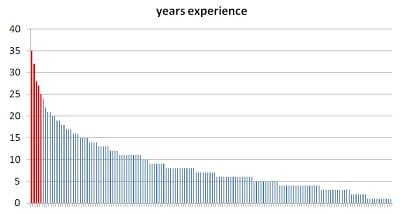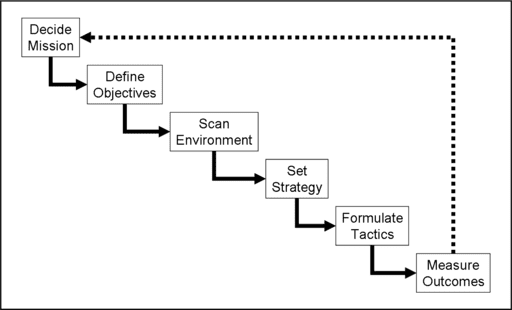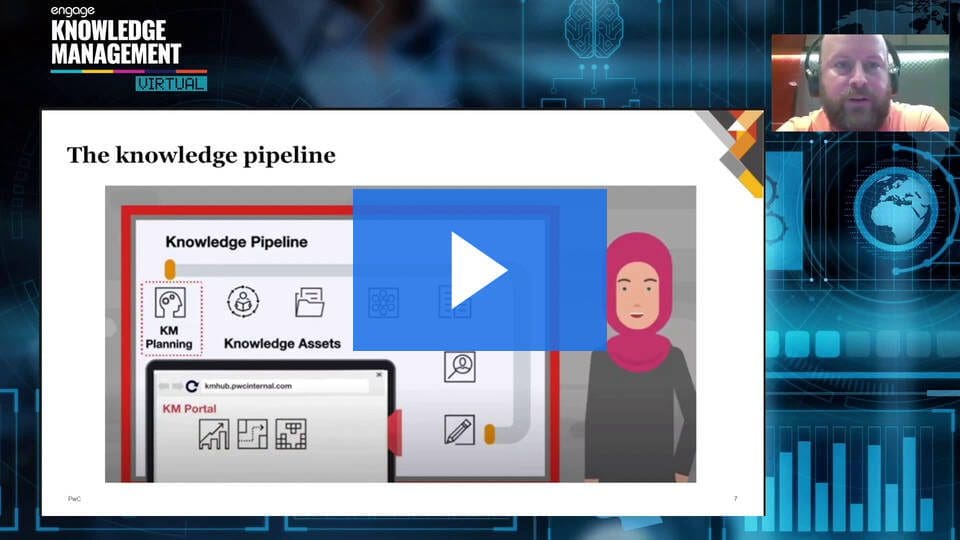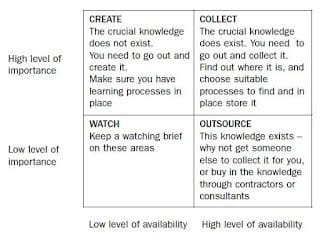Nick Milton
-
Nick Milton wrote a new post on the site CYBERCASEMANAGER ENTERPRISES 3 years, 11 months ago
All forms of Management involve conversation, and Knowledge Management is no different. The management of intangibles is driven by conversations. Those conversations are focused on the particular intangible in […]

-
Nick Milton wrote a new post on the site CYBERCASEMANAGER ENTERPRISES 3 years, 11 months ago
Introducing Knowledge Management is likely to take a decade before it is fully embedded. Here are some benchmark statistics Over the past few decades we have helped many organisations to benchmark their current […]

-
Nick Milton wrote a new post on the site CYBERCASEMANAGER ENTERPRISES 4 years ago
For any tasks or activities or conceptual frameworks which have to last beyond the limits of the reliability of human memory, you need to start to build a documented Body of Knowledge. Image from wikimedia […]

-
Nick Milton wrote a new post on the site CYBERCASEMANAGER ENTERPRISES 4 years ago
There are two approaches to managing a body of knowledge within a community of practice – curation, and synthesis.One of the functions of a community of practice is to provide a means for developing and co-owning […]

-
Nick Milton wrote a new post on the site CYBERCASEMANAGER ENTERPRISES 4 years ago
There is a bit of a philosophical divide in KM circles – those who take a top-down approach to implementation, and those who prefer bottom-up. The truth is that neither are right.Image from wikimedia commonsThe […]

-
Nick Milton wrote a new post on the site CYBERCASEMANAGER ENTERPRISES 4 years, 1 month ago
Don’t fall into the trap of assumaing your knowledge all lies with the experts. There is a lot of tacit knowledge in the “long tail” of community members.We know that not all Knowledge (in fact very […]

-
Nick Milton wrote a new post on the site CYBERCASEMANAGER ENTERPRISES 4 years, 1 month ago
Here is insight into how NASA tackles the issue of incentives and motivation for KM behaviours. Image from wikimedia commonsIncentives and motivation has long been a topic on this blog. Here in Knoco we believe i […]

-
Nick Milton wrote a new post on the site CYBERCASEMANAGER ENTERPRISES 4 years, 1 month ago
I did some calculations recently that suggest that attempts to measure a corporate KM culture may give pessimistic figures. Here’s why.We all know that culture is a key factor in KM, and that introducing KM will […]

-
Nick Milton wrote a new post on the site CYBERCASEMANAGER ENTERPRISES 4 years, 1 month ago
Introducing KM means also introducing plans for KM, at different levels in the organisation. Here are a few of the plans you may need, depending on your context. Compo, CC BY-SA 3.0, via Wikimedia CommonsAny m […]

-
Nick Milton wrote a new post on the site CYBERCASEMANAGER ENTERPRISES 4 years, 1 month ago
This is a blog post I repeat every 5 years or so, my summary of Top 7 success factors for implementing Knowledge Management. There are more than 7, of course (see the knowledge manager’s handbook for details), […]

-
Nick Milton wrote a new post on the site CYBERCASEMANAGER ENTERPRISES 4 years, 1 month ago
The video below is from a talk I gave to the Gesellschaft für Wissensmanagement (GfWM) knowledge camp last week, on the topic of “value focused KM”. You can find more videos from the same event here. The vi […]
-
Nick Milton wrote a new post on the site CYBERCASEMANAGER ENTERPRISES 4 years, 2 months ago
There is a school of thought that knowledge lies only in the minds of individuals. I think this is misleading, and that reality is both more complex than this, and more interesting.A search of the internet will […]

-
Nick Milton wrote a new post on the site CYBERCASEMANAGER ENTERPRISES 4 years, 2 months ago
The video below is a conversation between Nancy Dixon and Tom Stewart, two of the early pioneers of the KM discipline. This is great stuff with important insights – please set aside 30 minutes to listen to it!The […]
-
Nick Milton wrote a new post on the site CYBERCASEMANAGER ENTERPRISES 4 years, 2 months ago
There is no silver bullet for Knowledge Management, because KM is a management system with many component parts, all of which need to be in place. Bar Silver Bullet by Sprott Money on FlickrWe often hear vendors […]

-
Nick Milton wrote a new post on the site CYBERCASEMANAGER ENTERPRISES 4 years, 2 months ago
Knowledge and information are part of a continuum but not the same, and knowledge problems cannot be solved with information tools alone.Image from wikimedia commonsOften a client comes to us and says something […]

-
Nick Milton wrote a new post on the site CYBERCASEMANAGER ENTERPRISES 4 years, 2 months ago
I have blogged before about the two simultaneous and overlapping workstreams in an organisation – the product workstream, and the knowledge workstream. But what exactly is the in-house organisation that delivers […]

-
Nick Milton wrote a new post on the site CYBERCASEMANAGER ENTERPRISES 4 years, 2 months ago
Here is a link to a video of my ex-colleague Rupert Lescott talking at a virtual KM event about the application of KM to projects within PWC. Thanks Rupert for letting me share the link below (you will need to […]

-
Nick Milton wrote a new post on the site CYBERCASEMANAGER ENTERPRISES 4 years, 3 months ago
Knowledge is both an input to, and an output from, project activity. The projects therefore need a plan to manage that knowledge. Projects consume and create resources. They consume money, time and equipment, and […]

-
Nick Milton wrote a new post on the site CYBERCASEMANAGER ENTERPRISES 4 years, 3 months ago
We know that Knowledge Management requires a management framework, rather than a silver bullet technology. But how do we explain what a management framework is?We know that KM requires a framework of roles, […]

-
Nick Milton wrote a new post on the site CYBERCASEMANAGER ENTERPRISES 4 years, 3 months ago
The SECI model relies on the terms Explicit and Tacit. If these terms are poorly understood, does the model still hold? I suggest an alternative model here. I blogged recently about the terms Tacit and E […]

- Load More


















